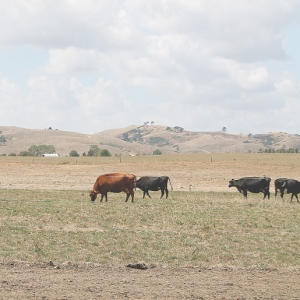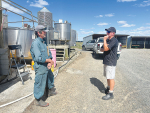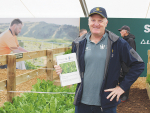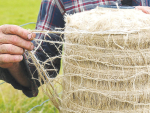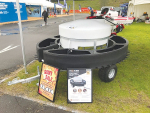He says production-wise it has been a good year for dairy farming around the country but it seems to be rapidly descending into a poor finish because of the weather.
“Take the example of the Waikato from a production perspective. It had been an above-average year until about January, but then production started to slide. Production so far in February is down about 17% on the same time last year, though for the whole season to date it’s about 2%.”
McBeth says farmers need to remember it hasn’t been a particularly bad year – especially at the start of the season. But he says they have to be careful at this time of the year to ensure they don’t compromise next season’s production by milking cows too long or hard. DairyNZ is planning to run some ‘summer dry’ seminars shortly to make sure farmers have the necessary information to make good decisions.
In the last week, McBeth says he’s flown over many parts of the country and while it might look green from the air, it’s a different story on the ground, particularly in Waikato.
“Grass growth rates are very low because of the dry and whilst there were residual covers, once the cows have chewed those down, the growth behind them is so low that when they are back again there isn’t much feed for them. The result is the cows will be losing a bit of condition as they are not eating enough and not producing that well either.”
McBeth says many farmers are feeding out which is quite normal for this time of the year as they try to keep milk production going until the autumn rains. He says the challenge with a drought is that you never know when it will end so it’s important farmers have plans and set trigger points for certain actions.
“This involves deciding when to dry off animals, bearing in mind dried-off cows still need to be fed.”
A plan must be in place to get cows up to a body condition score of 5.0 for a cow or 5.5 for a heifer before calving. Do feed budgets and source supplementary feeds, McBeth says. Ask which core cows you want to have milking in autumn when hopefully the rains come, so they can be milked through to the end of the season, and which ones should be dried off now.
Farmers should be looking to cull unwanted cows now because they are ‘passengers’ on the farm and are not going to be wintered. Better to get rid of cull cows now and reduce feed demand, even if prices are low.
McBeth reports having spoken to a farmer in Canterbury who told him he was losing 5mm a day due to transpiration; even with irrigation it’s hard to keep moisture in the soil.
McBeth says not as much supplement as normal was made because of the cooler and drier weather. And the cooler temperatures have affected the yields of some maize crops.
A key message to farmers is look at feed budgets from now right through to next spring when the cows come back from winter grazing.

